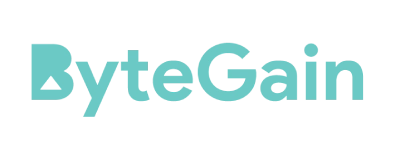Are you looking for Kajabi Alternatives? Whether you want a more affordable option or are just curious about what other platforms have to offer, there are plenty of solutions out there.
In this blog post, we’ll take an in-depth look at the best options and compare their features, cost, integrations, and services so that you can find the perfect Kajabi alternative for your business.
We’ll be covering everything from simple website builders to powerful eCommerce systems – so whatever your project may require, there’s sure to be something here that will fit your needs. Let’s get started!
Kajabi Alternatives🙋
Are you looking for an alternative to Kajabi? There are a few options on the market, and each has its own benefits and drawbacks. Let’s take a look at some of the most popular ones.
1. MailChimp
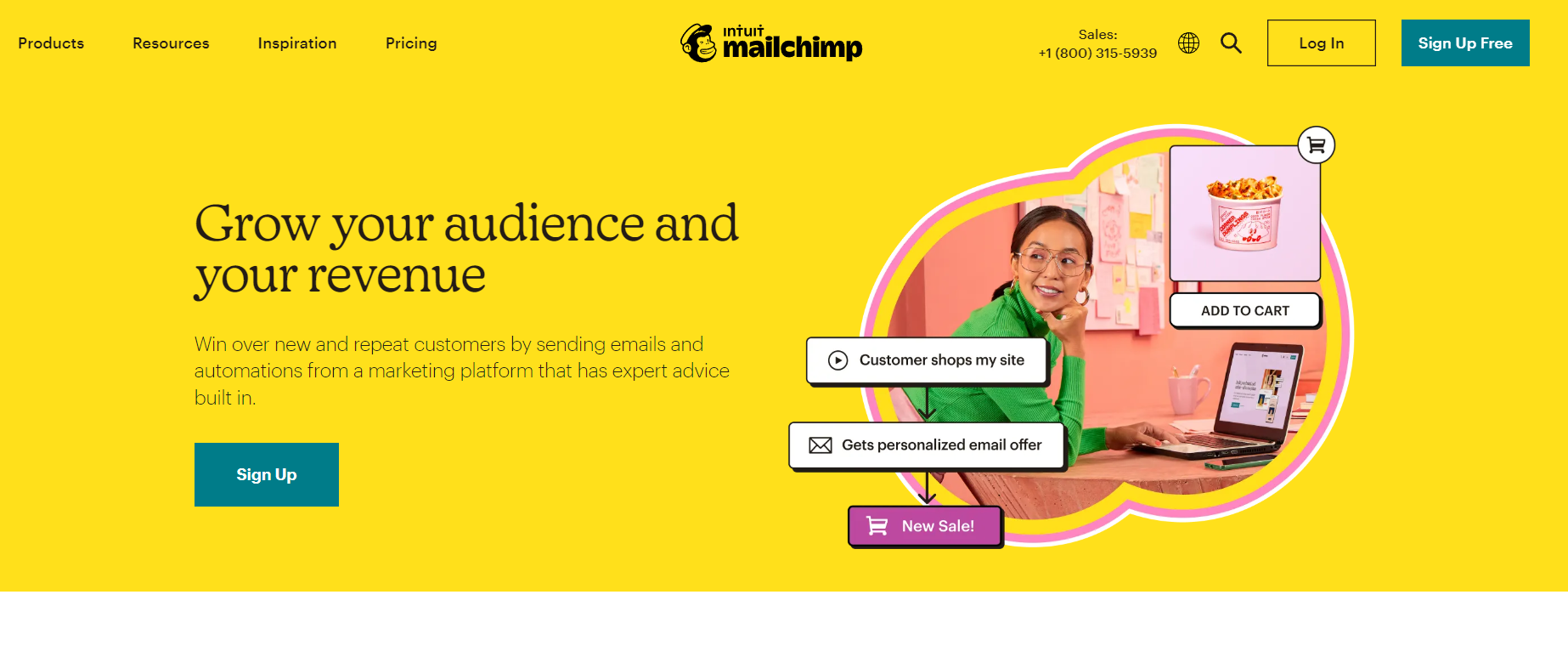
MailChimp is one of the most popular email marketing platforms out there. It’s easy to use, has a wide range of templates and integrations, and is affordable for small businesses.
MailChimp is a popular email marketing service that allows businesses to create and send newsletters, promotional emails, and other types of email campaigns. Here are some of the features and pros and cons of using MailChimp:
Features:
- MailChimp allows you to create customizable email templates.
- You can track the results of your email campaigns, including how many people opened your email and clicked on any links.
- MailChimp offers a wide range of integrations with other services, such as Salesforce and Shopify.
Pros:
- MailChimp is relatively affordable, with pricing plans that start at just $10/month.
- The service is easy to use, even for people who are not technically savvy.
- MailChimp offers a lot of flexibility in terms of what you can do with your email campaigns.
Cons:
- MailChimp does not allow you to send automated emails.
2. ActiveCampaign
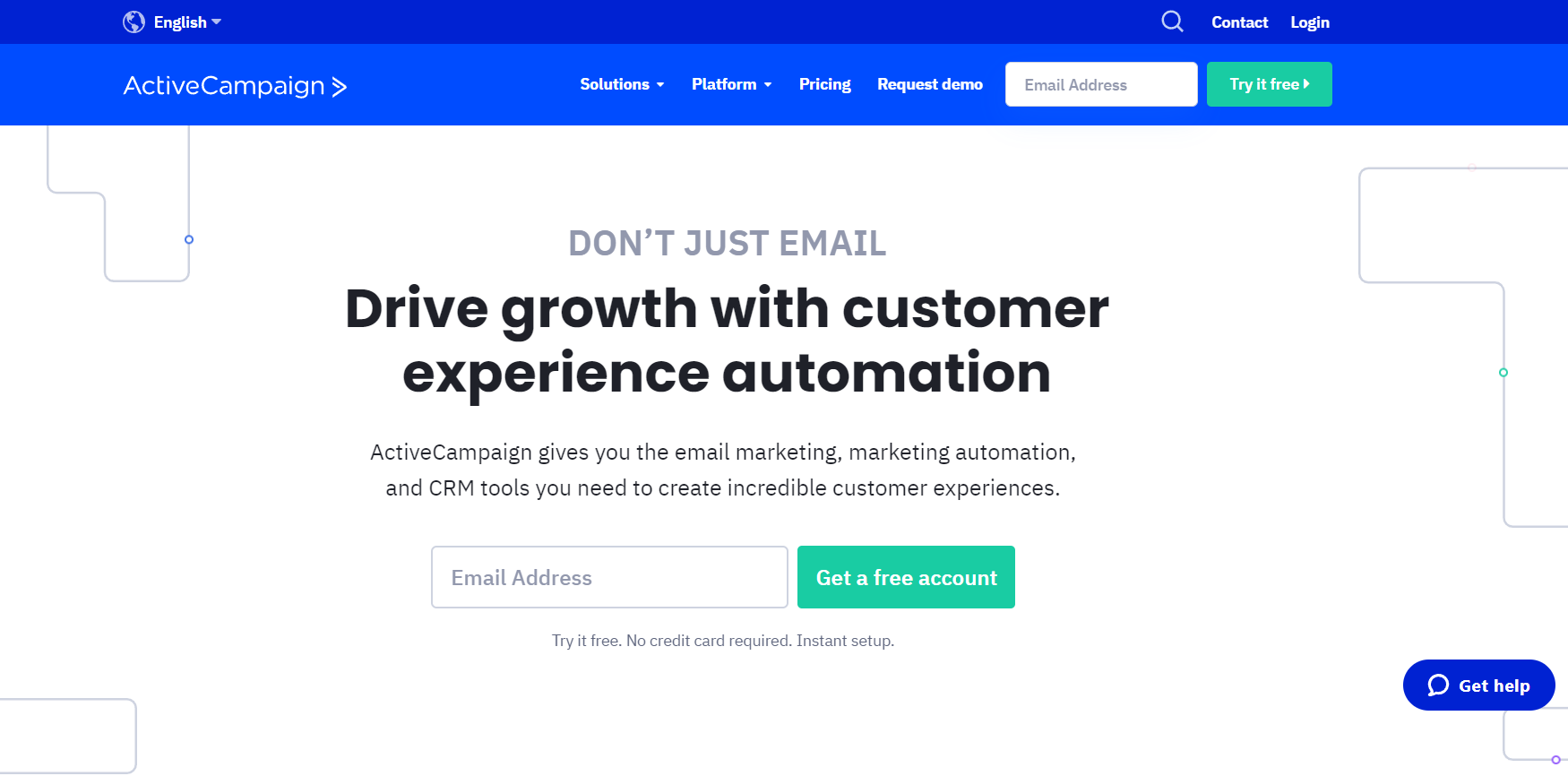
ActiveCampaign is another great option for small businesses. It’s more expensive than MailChimp, but it offers more features and flexibility. It’s also very easy to use.
ActiveCampaign is a platform for email marketing, marketing automation, and CRM. It offers a wide range of features, including automated email marketing, contact management, lead scoring, and CRM integration.
ActiveCampaign is one of the most popular email marketing platforms on the market. It’s easy to use and offers a wide range of features, making it an appealing choice for small businesses and entrepreneurs.
Features
Some of the key features of ActiveCampaign include:
- Automated email marketing: Automatically send emails based on triggers such as subscription date, purchase date, or abandoned cart.
- Contact management: Keep track of contacts’ information and interactions with your company.
- Lead scoring: Assign points to leads based on their interactions with your company, and use those points to prioritize leads.
- CRM integration: Integrate ActiveCampaign with your existing CRM system to manage all your customer data in one place.
ActiveCampaign is a popular email marketing service that offers many features and benefits, as well as a few drawbacks.
Pros
- The pros of ActiveCampaign include its automation capabilities, which allow you to create complex workflows to manage your subscribers and automate your marketing tasks.
- Additionally, the service offers a wide range of integrations with other services, including CRMs, eCommerce platforms, and more.
Cons
- The cons of ActiveCampaign include its higher-than-average price point and its lack of phone support.
- However, these drawbacks may not be an issue for all businesses, so it’s important to consider your specific needs before signing up for the service.
Overall, ActiveCampaign is a powerful email marketing tool with a lot to offer businesses of all sizes. If you’re looking for an automated way to manage your email marketing campaigns, then ActiveCampaign is definitely worth considering.
3. Infusionsoft

Infusionsoft is a powerful CRM and marketing automation tool that’s aimed at larger businesses. It’s expensive, but it offers a lot of features and can be customized to fit your needs.
When it comes to choosing a CRM for your business, there are a lot of factors to consider. One important decision is whether to use an all-in-one CRM like Infusionsoft or to use a suite of different software programs. Here we’ll explore the pros and cons of using Infusionsoft as your CRM.
Pros:
1. Infusionsoft is a comprehensive CRM that can handle almost any task you need it to. It’s great for automating marketing tasks, sales tasks, and customer service tasks.
2. The software is very user-friendly and easy to learn. Even if you’re not tech-savvy, you’ll be able to quickly learn how to use Infusionsoft.
3. The software is affordable, especially if you’re using it for a small business. You can get started with a very low monthly investment.
4. Infusionsoft integrates with a wide range of other software programs, making it easy to connect with the tools you’re already using.
Cons:
1. The learning curve for Infusionsoft can be steep, especially if you’re not familiar with CRMs in general. It may take some time before you feel comfortable using all of its features.
2. The software can be expensive if you need to use it for a larger company. If your company has more than 100 employees, you’ll likely need to upgrade to the enterprise edition of the software.
3. Some users have complained about the customer service offered by Infusionsoft. If you run into any problems with the software, you may have difficulty getting help from the company’s support team.
4. HubSpot Marketing Free
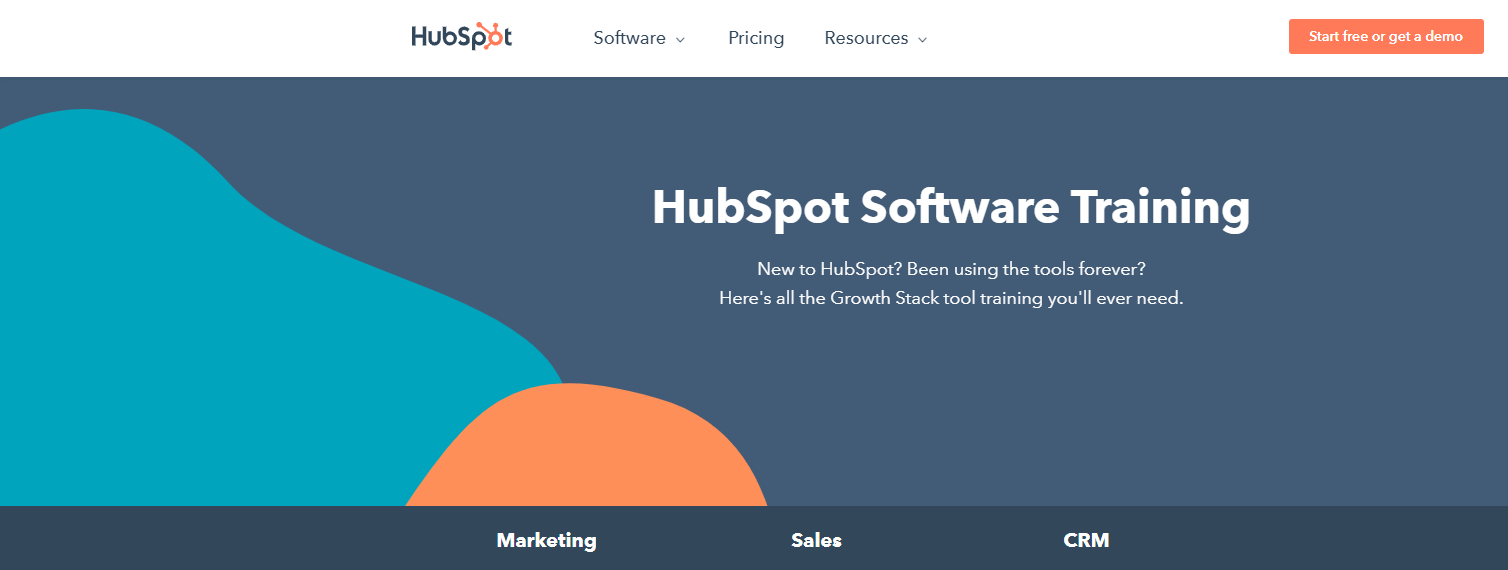
HubSpot Marketing Free is a great option for businesses that are just starting out. It’s free to use, has a wide range of features, and is easy to learn and use.
HubSpot is one of the most popular marketing automation software platforms in use today. It offers a wide range of features, including email marketing, website tracking, lead capture, and CRM integration. Here are some of the pros and cons of HubSpot:
Pros:
1. HubSpot is easy to use. The interface is intuitive and it’s easy to set up campaigns and track results.
2. HubSpot has a wide range of features, including email marketing, website tracking, lead capture, and CRM integration. This makes it a comprehensive solution for managing all your marketing activities.
3. HubSpot offers good customer support. If you have any problems using the software or need help setting up a campaign, you can easily get help from the HubSpot support team.
4. HubSpot is affordable. The pricing structure is very affordable, especially when compared to other marketing automation platforms.
Cons:
1. HubSpot can be overwhelming for beginners. There’s a lot of functionality packed into the software and it can be difficult to figure out how to use it all without some training.
2. The reporting functionality isn’t as robust as some of the other options available on the market. If you need detailed reports on your marketing activity, HubSpot may not be the best option for you.
3. The platform can be slow at times and occasionally experiences glitches. This can be frustrating if you’re trying to run a time-sensitive campaign.
5. Shopify
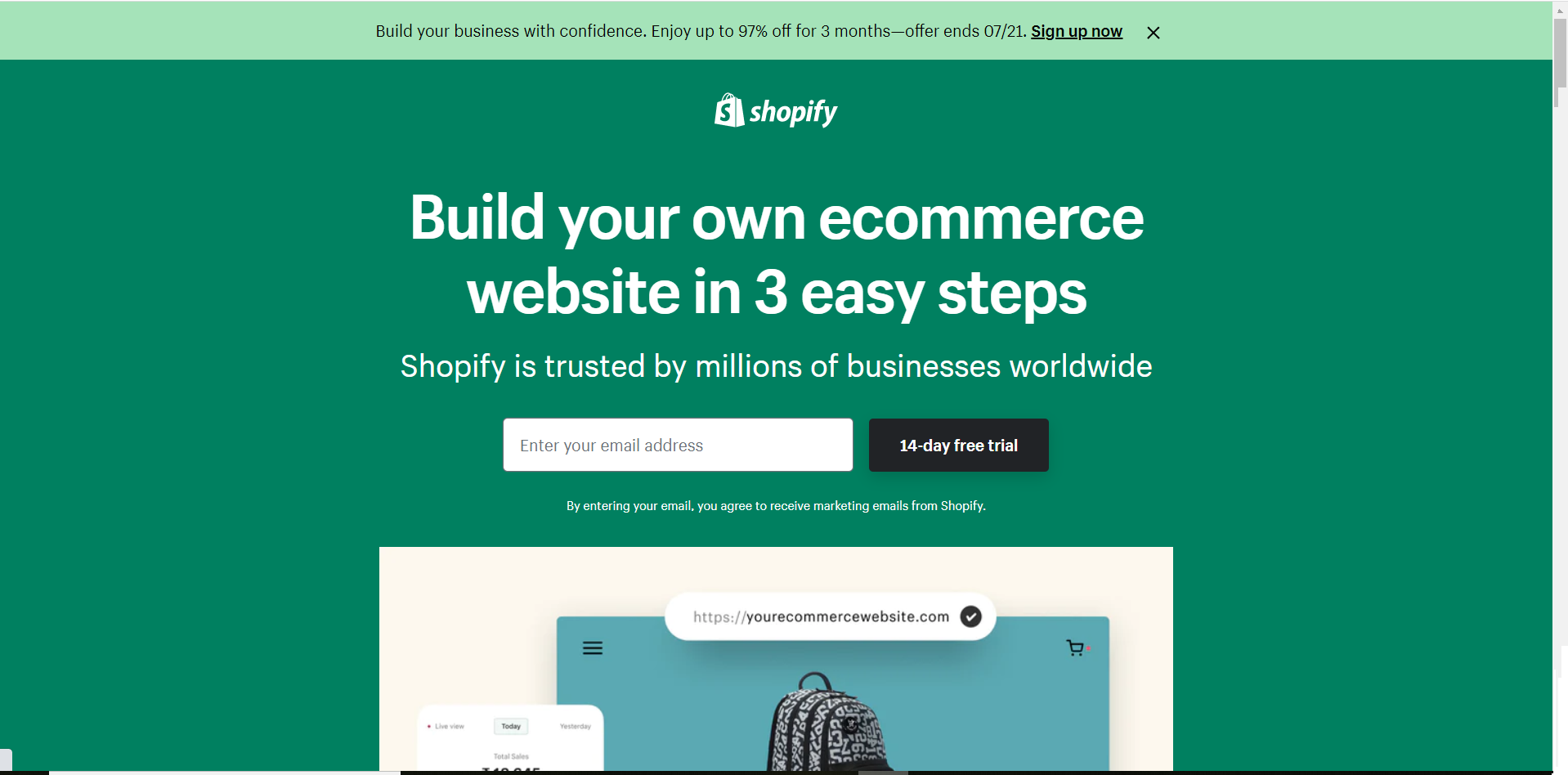
Shopify is a platform that helps you create an online store. It has a wide variety of templates to choose from, and it’s easy to use. You can also connect your store to Facebook and other social media platforms, which can help you boost your sales. The downside is that it can be expensive, and the fees can add up quickly.
Features of Shopify
- Shopify offers a wide range of features for businesses to make their online presence successful.
- It provides an easy-to-use platform for businesses to create and manage their stores, including customizable themes, analytics data, secure payment processing, and order management capabilities.
- With Shopify, businesses can reach customers anywhere in the world with multi-channel sales and powerful marketing tools like discount codes and abandoned cart recovery.
- Additionally, Shopify’s 24/7 customer support is great for providing the help and guidance needed while managing an online store.
With all these features available, it’s clear that Shopify is an invaluable tool for creating an engaging and profitable eCommerce business.
Pros of Shopify
- Shopify has revolutionized the eCommerce industry and started a new era of online shopping.
- Its user-friendly software and intuitive design allow even the newest entrepreneurs to get their businesses up and running without dealing with the complexities of hosting, coding, and configuring servers.
- This makes it much easier for people to start their own businesses without having in-depth knowledge of technology systems or any prior experience running a business.
- It also offers additional features such as analytics, payment processing, email marketing, and shipping services which provide shop owners with powerful tools to grow their businesses.
- With Shopify, it has never been easier to launch an eCommerce store, list products, and become successful in the industry!
Cons of Shopify
1. One of the main cons of using Shopify is its pricing structure.
2. Another con is that the Shopify platform can be a bit complex and overwhelming to learn if you don’t already have experience in web design or coding.
also, Read: Optimizepress Alternatives
6. Teachable

Teachable is another platform that helps you create online courses. It’s easy to use, and you can add videos, quizzes, and other interactive elements to your courses.
You can also sell your courses through Teachable’s marketplace, or you can keep them all to yourself. The downside is that Teachable takes a commission on each sale, so you may not make as much money as you would with other platforms.
Features of Teachable
1. Customizable course landing pages and sales pages
2. Ability to create quizzes and surveys
3. Automated email marketing campaigns
4. Easy integration with third-party tools like Zapier, MailChimp, etc.
5. Comprehensive reporting on student progress and engagement
Pros of Teachable
1. Flexible Pricing
2. Integrated Payment Processing
3. Easy Course Creation
Cons of Teachable
1. Teachable’s course creation process can be complicated and confusing at times due to its limited drag-and-drop course editor.
7. Wix

Wix is a website builder that allows you to create professional-looking websites without any coding experience. It’s easy to use, and there are a variety of templates to choose from. The downside is that Wix websites are not very search engine optimized, so they may not show up as high in search results as sites built with other platforms.
Features of Wix
1. Drag-and-drop website builder
2. Hundreds of designer-made templates
3. Advanced design features and customization options
4. Powerful SEO tools to help you get found online
5. App Market with hundreds of integrations to add extra functionality
Pros of Wix
Write a brief article about the pros of Wix, an online website builder and hosting service.
1. Easy to use
2. Variety of customizable templates
3. Mobile optimized
4. Built-in SEO tools
Cons of Wix
- One of the major cons of using Wix is that it can be quite expensive when compared to some of the other website-building platforms available.
- Another potential downside of Wix is that it can be difficult to switch hosting companies and platforms if you decide further down the line that you want to explore different options.
8. Udemy

Udemy is a platform for creating online courses. It has a huge user base, and it’s easy to upload your courses and start selling them immediately. The downside is that Udemy commissions each sale, so you may not make as much money as you would with other platforms. Before diving into the article, checkout the detailed comparison on Udemy vs Teachable.
Features of Udemy
1. Udemy offers students a wide variety of courses from top instructors, covering topics from programming and software development, to personal development and digital marketing. With over 130,000 courses across 80+ categories, there’s something for everyone.
2. Udemy provides lifetime access to all its courses – once you purchase a course, you can go back and review the material as many times as you’d like. Udemy also includes interactive elements such as quizzes and projects that help to reinforce the learning process.
3. Finally, Udemy offers a 30-day money-back guarantee for all its courses – so if you’re not satisfied with your purchase, you can get a full refund. With this guarantee, there’s no risk in trying out one of Udemy’s courses!
4. Udemy also has a mobile app that allows students to access their courses on the go. This makes it easy for users to learn and review course material anytime, anywhere.
Pros of Udemy
1. Affordable – Udemy offers a wide range of courses at significantly lower prices than traditional education.
2. Accessible – With online learning, students have access to course materials and lectures from anywhere in the world with an internet connection.
3. Flexible – Udemy’s self-paced learning environment allows learners to move through material at their own pace and schedule classes around other commitments.
4. Variety – Udemy offers a variety of courses covering different topics, so users can find something that suits their interests or needs.
5. Quality Content – Udemy provides high-quality content from industry experts, providing valuable knowledge to students at any level of experience in any subject area.
Cons of Udemy
1. One of the major cons of Udemy is its lack of official accreditation. Udemy courses do not have any form of external validation, nor do they offer any type of certification or diploma.
2. Another disadvantage of Udemy is the lack of contact with teachers and other students.
9. WordPress
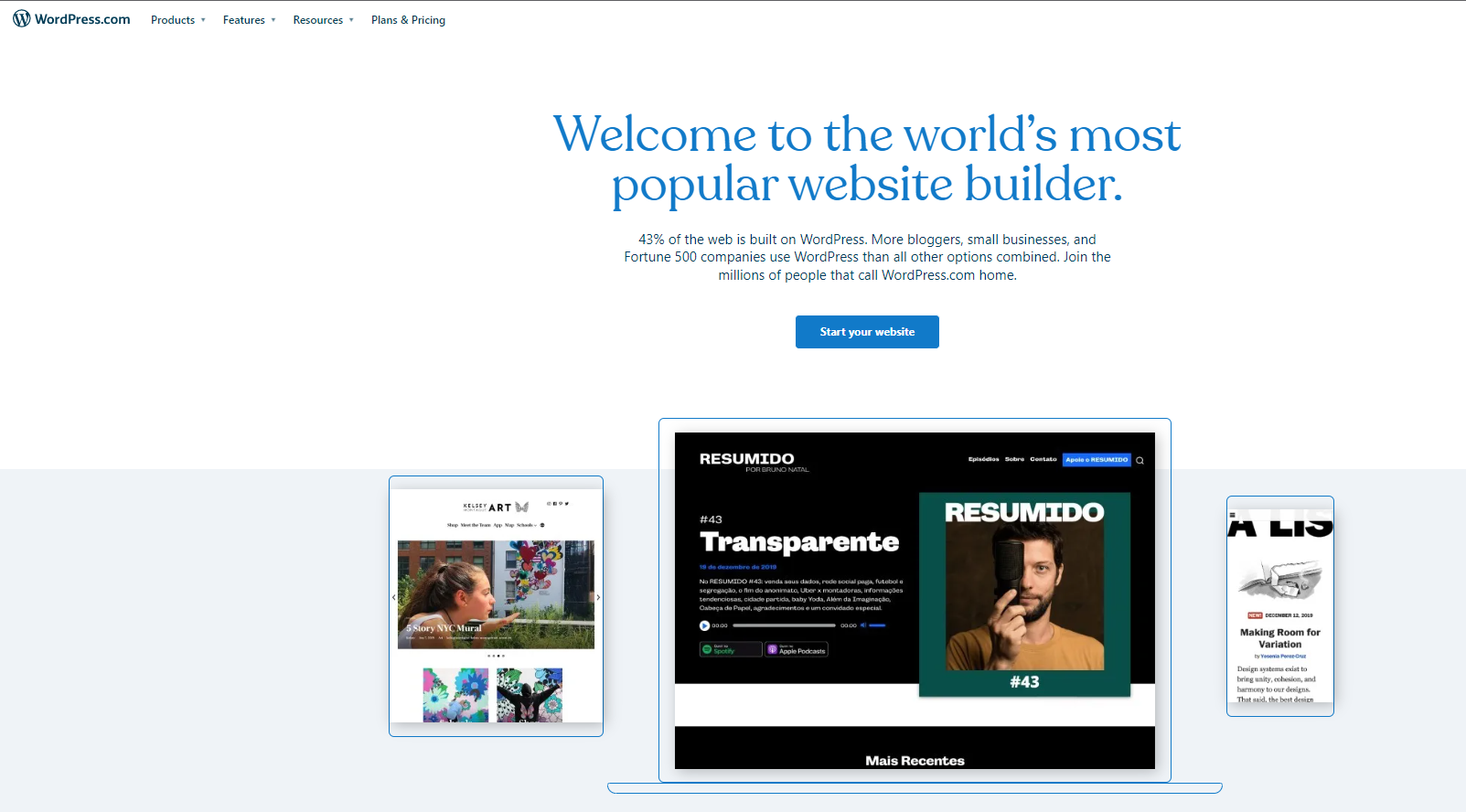
WordPress is a content management system that allows you to create websites and blogs from scratch or by using pre-made templates. It’s free and open source, which means that there are a lot of people who know how to use it. The downside is that WordPress sites can be slow and difficult to optimize for search engines.
Features of WordPress
1. Easy to use and customize
2. SEO friendly
3. Responsive design for mobile devices
4. Ability to embed media from other sites like YouTube and Vimeo
5. Thousands of plugins and themes available for customization
6. Regular updates with new features and bug fixes
Pros of WordPress
1. One of the biggest advantages of WordPress is its user-friendly interface, which makes it easy for beginners to set up and manage their website or blog.
2. WordPress is also highly customizable, allowing users to choose from thousands of themes and plugins to create a unique and personalized look for their site.
3. WordPress is also very SEO-friendly, which means that it can help your website rank higher in search engine results.
Cons of WordPress
1. There is more need for maintenance
2. Cost of hosting is high
Quick Links
- Samcart & Kajabi Integration
- Best Teachable Alternatives
- Kajabi vs Teachable
- ClickFunnels vs Ontraport
- Ontraport vs Kajabi
Conclusion- Kajabi Alternatives 2025
In conclusion, Kajabi is a great platform for creating and selling digital products online. However, if you are looking for an alternative to Kajabi that offers more features or better pricing options, there are several other platforms available on the market today.
These alternatives offer everything from email marketing automation tools to payment processing solutions at competitive prices.
Whether you’re just starting out with your business or have been operating it successfully for some time now, one of these Kajabi Alternatives could be the perfect fit for your needs.


